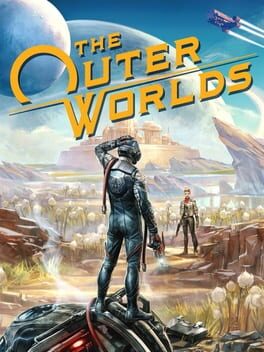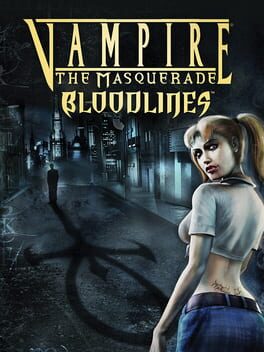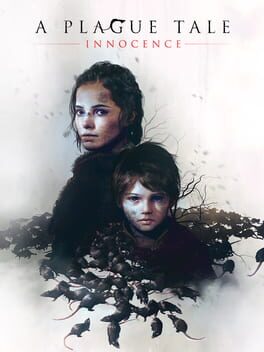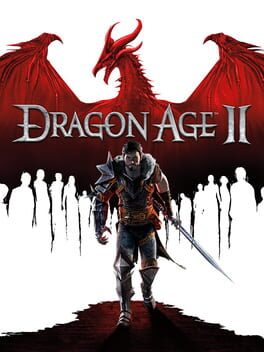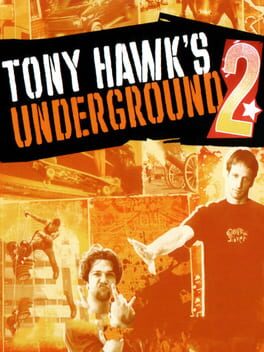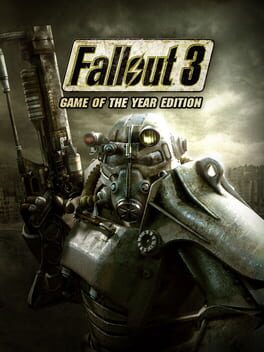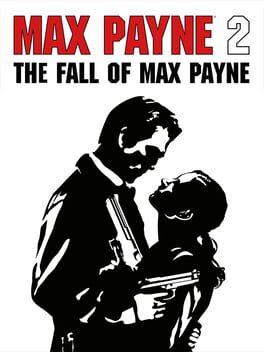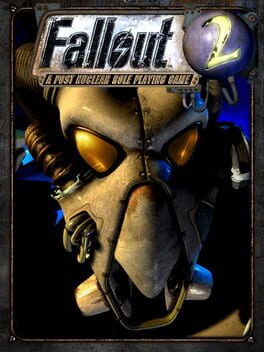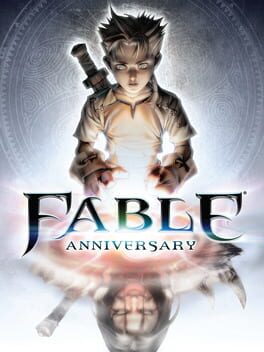ICQB45
1194 Reviews liked by ICQB45
Omori
2020
Omori is... strange. Omori's story is the kind that can only be properly communicated through the dynamic and interactive medium of video games... but at the same time, it's the fact that Omori is a video game that holds it back from being truly amazing. It needed to be a video game, but the actual gameplay is the curse that prevents Omori from stepping into the sun.
There's so much good buried inside of Omori that giving the game a 3.5/5 feels like an insincere disservice to Omocat's darling pet project... but at the same time, a 3.5/5 feels awfully generous for what ultimately amounts to a decent but grindey Earthbound-like RPG that never fully understands the meaning of 'restraint'... or 'balance', for that matter. The more time passes, the more issues I have with this game. It is simultaneously misguided as hell while also being a genuine passion project, although I do think it leans more towards the 'passion project' side of things. It's strange. Omori is hard to nail down. Omori is both a genuine work of art and an intermittently-frustrating slog all at once.
Omori is too fucking long, for one thing. I was already starting to feel fatigue around Sweetheart's castle (a crying shame given how excellently-crafted the dungeon actually is, it's easily one of the mechanical highlights of the game), and realizing there was even more game to go through was a real killer. Omori is a serviceable eight-ten hour game that stretches itself out to twenty, and that's frankly unacceptable because there isn't a whole lot to actually do in Omori a lot of the time. There are several points throughout the game where Omori drags its heels and dicks around, seemingly because the game wants to use its bloated runtime to justify the $20 price tag. There are "sidequests", but they're pointless little endeavors that amount to you fetch-quest meandering all over the place for what amounts to a pat on the back and a slap on the wrist. There's a lot of interactable objects, but a lot of them just say basic things like "a fire hydrant, nothing special" or "a cutting board", momentary little time-wasters that add up over time because sometimes you click on something and it actually has something funny or enlightening to say, leading to this annoying cycle where you'll keep tapping Z on every object you see even though you know 85% of them are going to say nothing of merit. (In stark contrast to Undertale, where interacting with objects was one of the highlights of the game because it felt like everything had unique dialogue attached to it.)
Perhaps the biggest pacing issue is the fact that sizable portions of Omori honestly feel like filler. When the game starts and you're fighting charming, spunky characters like Space Boyfriend and Sweetheart, it's easy to enjoy yourself and simultaneously get lost in their zany antics while also acknowledging their psychological potential for Omori's character (it's clever how Space Boyfriend's lovesickness is a parallel for Omori's fear of connection, and how Sweetheart's obnoxious arrogance is a personification of Omori's own problems with self-love). But over time when you fight people like the Bread Twins and the shark guy Mr. Jawsum and those strangely hot mermaid slime girls and that dickhead whale Humphrey, you start wondering... what's the point of all this? What is this all building up to? And the truth is that it doesn't add up to much at all. So much of the goofy shit that happens in Headspace has honestly very little to do with the actual plot of the game: the character arc of Omori coming to terms with the loss of a loved one. After a certain point, it stops having much of anything to do about Omori or Basil or Aubrey or any of the main characters, really. All it does is reinforce the fact that Omori absolutely did not have to be this long - if they'd trimmed the fat and focused, then Headspace could have been a clever and creative tool to visibly demonstrate Omori's character growth. Instead, it's more of a playground of occasionally-great and hard-hitting moments underscored by frustrating backtracking, narrative aimlessness, and frankly unfair difficulty spikes.
I wouldn't call Omori 'hard' per se, but I would call Omori unfair if you go through it normally (without any substantive grinding, anyway). Omori has a serious balancing problem that permeates throughout the entire game. Grunt enemies can take away like a third of your health bar, and Omori loves surprising you with bullshit damage-sponge boss encounters that utterly cleave away at your health and barely give you any time to breathe. Any moment when you have to go on the defensive and heal/revive your teammates, you are absolutely at a disadvantage, and you're probably going to die. Healing items cost way too much money for a game with damage outputs as sometimes busted as this, and it commits the cardinal sin of turn-based RPGs: Omori dying ends the entire fight prematurely, an aggravating and outdated JRPG trope that, while it makes narrative sense given that it's all in Omori's mind, is annoying and counterintuitive to consistent game design. And as neat as the Emotion System is, I feel like it ultimately doesn't matter in the grand scheme of things compared to raw damage output. Most times I was just using it for the sake of damage output, like making Omori sad to improve his shanking skills (somehow), or making Aubrey & Kel angry to make their multi-hits hit harder. Once you find the singularly useful and damaging thing that any given Emotion can do, you're never given much reason to variate from that because this game can be demanding and difficult if you're underleveled or breaking even.
The game is practically screaming at you to GRIND. Grind for money, grind for items, grind for level-ups. Work for that bread. I had to grind considerably to even dream of making it through Sweetheart's boss battle, and even then she had me on the ropes near the climax of the battle. And frankly, I was overleveled by that point in the game. As much as I enjoyed being on the edge of my seat and constantly thinking in the moment, I couldn't help but realize "I would be fucking infuriated if I was at the recommended level cap for this". Now, grinding doesn't take too long in Omori, teammates level up fairly quickly. But the process of grinding in this game is boring, and I don't enjoy having to grind more than I'm inclined to in the first place. It constantly feels like a chore, and it doesn't make any narrative sense given that Omori's world is an escapist one.
So much about Omori frustrates me... that it completely blindsides me whenever the game decides to be good. Like, REALLY good. There are moments, decisions, and ideas in Omori that are absolutely stellar. The actual smallness of the real-world narrative paints a compelling parallel to the goofy grandiosity of Omori's dream world. All of Omori's friends are fleshed-out and well-written, and it's easy to genuinely care about them whenever something happens to them. The artstyle is wonderful, a blend of cutesy pastel colors and lively, anime-esque colored-pencil sketches that only adds to the dreamlike and psychedelic quality of the game's presentation. Sometimes the synergy of the battle system actually clicks and you're making thrilling tactical decisions just to stay alive (I like the interplay of passing attacks between allies and how every single pass between two people have different mechanics attached to them). The fact that there's an entire hidden second route ('Hikikomori Route') that you can access simply by choosing not to open the door when you wake up is fascinating. Omori is a wonderful silent protagonist, full of character and depth and nuance in spite of the fact that he virtually never opens his mouth; practically the entire game is an inside-out exploration of his deep-seated fears and guilt. The eclectic and energetic soundtrack is fucking terrific. Omori is genuinely funny, never letting the horror drag the comedy down or vice versa.
Some of the narrative moments in this game really fucking hit: the haunting Black Space, the peaceful yet heartbreaking Lost Library sequence, Aubrey in the church, the stark contrast between IRL Aubrey vs. Dream Aubrey, Omori following the trail of photos to relive the truth, the terrific ending of the game. And while not all of the horror really sticks the landing, most of the time Omori fucking nails it in the psychological-horror department, like the oppressive dark blues and blacks in Sunny's house late at night, the simple but haunting design of 'Something', the frequent but subtle usage of droning bass, and the aforementioned minimalism of Black Space, a genuinely inspired Yume Nikki-esque monochrome realm containing some of the most abstract and ghoulish imagery the game has to offer. Omori is genuinely unnerving throughout its runtime, and I have to admire that even if it sometimes lapses into eyeroll-inducing creepypasta territory (only sometimes; it's much, much better than DDLC in this regard).
I don't know. Omori is both really special but also really lost in its own sauce. Omori's style and presentation is wonderful, a darling blend of space-pastel pixel art, notebook sketches, and these off-kilter, oversaturated photorealistic backgrounds that heighten the dreamy aspects of the overall game... but it all starts to lose its charm thanks to samey dungeon design and an overt amount of backtracking and fumbling around. The main characters and some of the side cast are genuinely enjoyable and have a lot to say for themselves. There's some terrific character writing here, but sometimes they don't really get a proper chance to shine due to the aimlessness of the overall plot, a plot that manages to be both harrowingly moving and distressingly aimless. Omori has a powerful and heartfelt message at the core of its messy, poorly-paced story, but you have to be willing to wade through a fair deal of monotony in order to actually see the diamonds in the rough, see what makes the narrative special. It is wonderfully-written and confused all at once.
And I think that's the most apt description I could cook up for Omori. It has the core of a really great game, but a sometimes-hollow and unflattering shell that doesn't do its greatness any favors. The nucleus of the game is good. Really good, in fact. There's a fantastic video game hidden inside of Omori, just barely out of sight - you can make out the shadow of it most of the time, and sometimes you even manage to see the jewel in the emperor's clothes... but these momentary flashes of lightning in a bottle never last long enough to make the overall experience completely 'worth it'. Omori just being "pretty decent" is honestly kind of a pity. I love what it has to say, I love how it looks, and sometimes I find myself just loving it, indubitably and unambiguously... but frankly, it's a hard game to love. Perhaps if Omori had been shorter and had some sharper design choices, I'd be singing a different tune. It's so, so close to being great. But as it stands, Omori, as a video game, merely stands in the shadow of greatness, only occasionally stepping into the sunlight and making itself known... much like its own reclusive and deeply shy protagonist.
There's so much good buried inside of Omori that giving the game a 3.5/5 feels like an insincere disservice to Omocat's darling pet project... but at the same time, a 3.5/5 feels awfully generous for what ultimately amounts to a decent but grindey Earthbound-like RPG that never fully understands the meaning of 'restraint'... or 'balance', for that matter. The more time passes, the more issues I have with this game. It is simultaneously misguided as hell while also being a genuine passion project, although I do think it leans more towards the 'passion project' side of things. It's strange. Omori is hard to nail down. Omori is both a genuine work of art and an intermittently-frustrating slog all at once.
Omori is too fucking long, for one thing. I was already starting to feel fatigue around Sweetheart's castle (a crying shame given how excellently-crafted the dungeon actually is, it's easily one of the mechanical highlights of the game), and realizing there was even more game to go through was a real killer. Omori is a serviceable eight-ten hour game that stretches itself out to twenty, and that's frankly unacceptable because there isn't a whole lot to actually do in Omori a lot of the time. There are several points throughout the game where Omori drags its heels and dicks around, seemingly because the game wants to use its bloated runtime to justify the $20 price tag. There are "sidequests", but they're pointless little endeavors that amount to you fetch-quest meandering all over the place for what amounts to a pat on the back and a slap on the wrist. There's a lot of interactable objects, but a lot of them just say basic things like "a fire hydrant, nothing special" or "a cutting board", momentary little time-wasters that add up over time because sometimes you click on something and it actually has something funny or enlightening to say, leading to this annoying cycle where you'll keep tapping Z on every object you see even though you know 85% of them are going to say nothing of merit. (In stark contrast to Undertale, where interacting with objects was one of the highlights of the game because it felt like everything had unique dialogue attached to it.)
Perhaps the biggest pacing issue is the fact that sizable portions of Omori honestly feel like filler. When the game starts and you're fighting charming, spunky characters like Space Boyfriend and Sweetheart, it's easy to enjoy yourself and simultaneously get lost in their zany antics while also acknowledging their psychological potential for Omori's character (it's clever how Space Boyfriend's lovesickness is a parallel for Omori's fear of connection, and how Sweetheart's obnoxious arrogance is a personification of Omori's own problems with self-love). But over time when you fight people like the Bread Twins and the shark guy Mr. Jawsum and those strangely hot mermaid slime girls and that dickhead whale Humphrey, you start wondering... what's the point of all this? What is this all building up to? And the truth is that it doesn't add up to much at all. So much of the goofy shit that happens in Headspace has honestly very little to do with the actual plot of the game: the character arc of Omori coming to terms with the loss of a loved one. After a certain point, it stops having much of anything to do about Omori or Basil or Aubrey or any of the main characters, really. All it does is reinforce the fact that Omori absolutely did not have to be this long - if they'd trimmed the fat and focused, then Headspace could have been a clever and creative tool to visibly demonstrate Omori's character growth. Instead, it's more of a playground of occasionally-great and hard-hitting moments underscored by frustrating backtracking, narrative aimlessness, and frankly unfair difficulty spikes.
I wouldn't call Omori 'hard' per se, but I would call Omori unfair if you go through it normally (without any substantive grinding, anyway). Omori has a serious balancing problem that permeates throughout the entire game. Grunt enemies can take away like a third of your health bar, and Omori loves surprising you with bullshit damage-sponge boss encounters that utterly cleave away at your health and barely give you any time to breathe. Any moment when you have to go on the defensive and heal/revive your teammates, you are absolutely at a disadvantage, and you're probably going to die. Healing items cost way too much money for a game with damage outputs as sometimes busted as this, and it commits the cardinal sin of turn-based RPGs: Omori dying ends the entire fight prematurely, an aggravating and outdated JRPG trope that, while it makes narrative sense given that it's all in Omori's mind, is annoying and counterintuitive to consistent game design. And as neat as the Emotion System is, I feel like it ultimately doesn't matter in the grand scheme of things compared to raw damage output. Most times I was just using it for the sake of damage output, like making Omori sad to improve his shanking skills (somehow), or making Aubrey & Kel angry to make their multi-hits hit harder. Once you find the singularly useful and damaging thing that any given Emotion can do, you're never given much reason to variate from that because this game can be demanding and difficult if you're underleveled or breaking even.
The game is practically screaming at you to GRIND. Grind for money, grind for items, grind for level-ups. Work for that bread. I had to grind considerably to even dream of making it through Sweetheart's boss battle, and even then she had me on the ropes near the climax of the battle. And frankly, I was overleveled by that point in the game. As much as I enjoyed being on the edge of my seat and constantly thinking in the moment, I couldn't help but realize "I would be fucking infuriated if I was at the recommended level cap for this". Now, grinding doesn't take too long in Omori, teammates level up fairly quickly. But the process of grinding in this game is boring, and I don't enjoy having to grind more than I'm inclined to in the first place. It constantly feels like a chore, and it doesn't make any narrative sense given that Omori's world is an escapist one.
So much about Omori frustrates me... that it completely blindsides me whenever the game decides to be good. Like, REALLY good. There are moments, decisions, and ideas in Omori that are absolutely stellar. The actual smallness of the real-world narrative paints a compelling parallel to the goofy grandiosity of Omori's dream world. All of Omori's friends are fleshed-out and well-written, and it's easy to genuinely care about them whenever something happens to them. The artstyle is wonderful, a blend of cutesy pastel colors and lively, anime-esque colored-pencil sketches that only adds to the dreamlike and psychedelic quality of the game's presentation. Sometimes the synergy of the battle system actually clicks and you're making thrilling tactical decisions just to stay alive (I like the interplay of passing attacks between allies and how every single pass between two people have different mechanics attached to them). The fact that there's an entire hidden second route ('Hikikomori Route') that you can access simply by choosing not to open the door when you wake up is fascinating. Omori is a wonderful silent protagonist, full of character and depth and nuance in spite of the fact that he virtually never opens his mouth; practically the entire game is an inside-out exploration of his deep-seated fears and guilt. The eclectic and energetic soundtrack is fucking terrific. Omori is genuinely funny, never letting the horror drag the comedy down or vice versa.
Some of the narrative moments in this game really fucking hit: the haunting Black Space, the peaceful yet heartbreaking Lost Library sequence, Aubrey in the church, the stark contrast between IRL Aubrey vs. Dream Aubrey, Omori following the trail of photos to relive the truth, the terrific ending of the game. And while not all of the horror really sticks the landing, most of the time Omori fucking nails it in the psychological-horror department, like the oppressive dark blues and blacks in Sunny's house late at night, the simple but haunting design of 'Something', the frequent but subtle usage of droning bass, and the aforementioned minimalism of Black Space, a genuinely inspired Yume Nikki-esque monochrome realm containing some of the most abstract and ghoulish imagery the game has to offer. Omori is genuinely unnerving throughout its runtime, and I have to admire that even if it sometimes lapses into eyeroll-inducing creepypasta territory (only sometimes; it's much, much better than DDLC in this regard).
I don't know. Omori is both really special but also really lost in its own sauce. Omori's style and presentation is wonderful, a darling blend of space-pastel pixel art, notebook sketches, and these off-kilter, oversaturated photorealistic backgrounds that heighten the dreamy aspects of the overall game... but it all starts to lose its charm thanks to samey dungeon design and an overt amount of backtracking and fumbling around. The main characters and some of the side cast are genuinely enjoyable and have a lot to say for themselves. There's some terrific character writing here, but sometimes they don't really get a proper chance to shine due to the aimlessness of the overall plot, a plot that manages to be both harrowingly moving and distressingly aimless. Omori has a powerful and heartfelt message at the core of its messy, poorly-paced story, but you have to be willing to wade through a fair deal of monotony in order to actually see the diamonds in the rough, see what makes the narrative special. It is wonderfully-written and confused all at once.
And I think that's the most apt description I could cook up for Omori. It has the core of a really great game, but a sometimes-hollow and unflattering shell that doesn't do its greatness any favors. The nucleus of the game is good. Really good, in fact. There's a fantastic video game hidden inside of Omori, just barely out of sight - you can make out the shadow of it most of the time, and sometimes you even manage to see the jewel in the emperor's clothes... but these momentary flashes of lightning in a bottle never last long enough to make the overall experience completely 'worth it'. Omori just being "pretty decent" is honestly kind of a pity. I love what it has to say, I love how it looks, and sometimes I find myself just loving it, indubitably and unambiguously... but frankly, it's a hard game to love. Perhaps if Omori had been shorter and had some sharper design choices, I'd be singing a different tune. It's so, so close to being great. But as it stands, Omori, as a video game, merely stands in the shadow of greatness, only occasionally stepping into the sunlight and making itself known... much like its own reclusive and deeply shy protagonist.
The Outer Worlds
2019
The Outer Worlds
2019
A little bit of a slog, I’ll be honest. Yet another “open world” game marred by uninteresting emptiness. I saw right away that this was supposed to be “New Vegas in space” but it fails at that on multiple fronts. Still, a gorgeous game, love that there are some threads of Anarchism here, but definitely not fleshed our nor validated enough. The writers obviously severely misunderstand it, and this is primarily shown through the character of Felix (who I love and desperately wanted more of!). Combat was fucking horrific. Companions ALWAYS got in the way of my shot. It was truly, insanely frustrating. Very short, and supremely lacking in narrative development. Skill tree is extremely low-effort. Decent enough new IP entry for obsidian, but I just wanted more. A lot more. Also, why even have planets on the map if they’re locked and inaccessible?????
A buggy, clearly unfinished mess of a game that completely falls apart near the end thanks to some atrocious combat and level design - And that's all after one installs the quite frankly necessary community patch that make the game actually playable.
10/10 - One of the best games I've ever played.
Seriously, despite all of the very real issues with this game, it still manages to be one of the most immersive and well crafted RPGs I've ever played, with a plethora of well written and memorable characters, some of the best quests I've ever experienced in a video game, (special mention to Calling Dr. Grout, one of my favorite levels in any game ever) and an incredible dark and sleazy atmosphere that just perfectly encapsulates the feeling of being a vampire in early 2000s LA.
10/10 - One of the best games I've ever played.
Seriously, despite all of the very real issues with this game, it still manages to be one of the most immersive and well crafted RPGs I've ever played, with a plethora of well written and memorable characters, some of the best quests I've ever experienced in a video game, (special mention to Calling Dr. Grout, one of my favorite levels in any game ever) and an incredible dark and sleazy atmosphere that just perfectly encapsulates the feeling of being a vampire in early 2000s LA.
Silent Hill
1999
A Plague Tale is just one of those games that is so unique that all you're left wanting at the end is more. No one else is making games like this right now. Stealth games with real stealth-based combat and puzzle solving - the stealth IS the puzzle, that's the key. Metal Gear Solid is close, but this grand adventure thing with a powerful linear narrative helps guide it so well.
Plague Tale also has some absolutely incredible music, and the first 2 acts of the narrative are heart-rending. I played this game with French voice acting not for the sake of immersion but because I really found Amicia's English voice off-putting. I also speak French fairly well so I could follow along without watching the subtitles too closely. The VA was stellar, some of the best I've heard this year.
The last act feels artificially elongated with characters acting illogically to basically lengthen the game time, but Chapter XIV sneaking into the castle is one of my favorite segments of any game ever. A Plauge Tale definitely hits some of the same pleasure centers for me as Dishonored, being equipped with a wide set of tools and being asked to use them to solve puzzles. The guards are, to be honest, not that intelligent, but it's a fantastic time nonetheless working around the rats and with the light puzzles.
The last boss was, to put it bluntly, kind of bull shit. The game has been a stealth game up till now and suddenly the final act is Dark Souls? I'm dodge rolling away from a man made of rats doing giant slams. Meanwhile, the previous bossfight, against Nicolas the executioner, was excellent. It used stealth in an intelligent way as a form of combat, and it makes me even more upset that he wasn't the final boss. Why the Inquisitor? Sure, he's more powerful, but the inquisitor has no emotional connection to Amicia. Nicolas killed her father, tortured her mother and brother, killed her friend Arthur. He should have been the final boss and it was a grave misstep lunking that honor off to a Emperor Palpatine rip-off with even less character we met 2 hours before.
Despite this qualms I had SO much fun with this game. I loved these characters, especially Amicia, who is a greatly compelling protagonist, and all the supporting cast, especially Lucas and Mellie. While the narrative gets messy at the end, it still doesn't lose sight of the themes of forgiving your loved ones. Great work, and I am absolutely psyched for Requiem. If they can fix a few things we'll definitely be in 9 territory!
Plague Tale also has some absolutely incredible music, and the first 2 acts of the narrative are heart-rending. I played this game with French voice acting not for the sake of immersion but because I really found Amicia's English voice off-putting. I also speak French fairly well so I could follow along without watching the subtitles too closely. The VA was stellar, some of the best I've heard this year.
The last act feels artificially elongated with characters acting illogically to basically lengthen the game time, but Chapter XIV sneaking into the castle is one of my favorite segments of any game ever. A Plauge Tale definitely hits some of the same pleasure centers for me as Dishonored, being equipped with a wide set of tools and being asked to use them to solve puzzles. The guards are, to be honest, not that intelligent, but it's a fantastic time nonetheless working around the rats and with the light puzzles.
The last boss was, to put it bluntly, kind of bull shit. The game has been a stealth game up till now and suddenly the final act is Dark Souls? I'm dodge rolling away from a man made of rats doing giant slams. Meanwhile, the previous bossfight, against Nicolas the executioner, was excellent. It used stealth in an intelligent way as a form of combat, and it makes me even more upset that he wasn't the final boss. Why the Inquisitor? Sure, he's more powerful, but the inquisitor has no emotional connection to Amicia. Nicolas killed her father, tortured her mother and brother, killed her friend Arthur. He should have been the final boss and it was a grave misstep lunking that honor off to a Emperor Palpatine rip-off with even less character we met 2 hours before.
Despite this qualms I had SO much fun with this game. I loved these characters, especially Amicia, who is a greatly compelling protagonist, and all the supporting cast, especially Lucas and Mellie. While the narrative gets messy at the end, it still doesn't lose sight of the themes of forgiving your loved ones. Great work, and I am absolutely psyched for Requiem. If they can fix a few things we'll definitely be in 9 territory!
Dragon Age II
2011
I think DA2 does a lot to improve on the original game, I really enjoy the setting and how each act has it's own storyline that each build on each other and effect each other. Another thing I enjoy is how all your choices in the first game all matter in this game and have some kind of effect, it's great world building that gives it even more unique playthroughs than the first one.
All the characters are great and I enjoyed going on quests with all the companions and hearing their banter. The dialogue and story of the game, along with the world building is all carefully crafted to make the game feel unique.
The ending is a very climatic event that wraps up the entire game very well, the combat is a welcomed improvement from the first game and the game just feels and looks better than the first one.
The transition between all the Dragon Age games feels very smooth despite all the possible routes to take the games and that is really some amazing world building by the developers that makes Dragon Age feel like an exceptionally unique series among other series.
I went with with rogue duelist btw. Kind of wish we could choose between different races/backgrounds like in Origins but it was best for the story.
All the characters are great and I enjoyed going on quests with all the companions and hearing their banter. The dialogue and story of the game, along with the world building is all carefully crafted to make the game feel unique.
The ending is a very climatic event that wraps up the entire game very well, the combat is a welcomed improvement from the first game and the game just feels and looks better than the first one.
The transition between all the Dragon Age games feels very smooth despite all the possible routes to take the games and that is really some amazing world building by the developers that makes Dragon Age feel like an exceptionally unique series among other series.
I went with with rogue duelist btw. Kind of wish we could choose between different races/backgrounds like in Origins but it was best for the story.
Resident Evil 4
2005
The plot's nonsensical, the horror's infrequent, the campiness is unbearable at times, the puzzles are out of place, the atmosphere doesn't compare to its predecessors', and, above all, it's a complete betrayal of the grounded nature that made classic Resident Evil so great. In one fell swoop it utterly decimated the chances of fixed-camera survival horror ever being a big deal again, but, damn, it was worth it. And if you look closely, Resident Evil is still there. Awkwardly moving backwards to make space between yourself and a slow-moving enemy. Desperately scavenging for health and ammo. Internally debating whether or not to use a green herb now or risk trying to find a red one later. Layered on top of these preexisting niceties is perhaps the greatest work of classical game design of all time. The ultra simple shooting mechanics expertly intersect with a constant clip of gameplay twists, some more noticeable than others. There's the phenomenal setpieces, of which I don't think there's a single misfire, but what's possibly more impressive is the less obvious stuff. The variance in terrain- some portions open, some portions closed off, some with a focus on verticality, some with crevices to hide in and debris that obstructs your vision, others where you have no choice but to face your fears head on. Despite the blistering pace, every single area feels memorable, like it has its own tangible identity... not simply as battle arenas, which is a trap that subpar shooters end up falling into, but as real locations, places you've truly passed through on your mission to rescue the president's daughter. Enemy types aid this by weaving in and out of your story, reappearing just when you've forgotten they exist, this time with a new weapon, or with a helmet on, or paired with a more threatening group. Skilled players will line up a whole hoard of enemies to hit them all with a single kick, shoot their projectiles out of the air instead of dodging them, and rely on using the knife just to preserve that tiny bit of ammunition. But, most importantly, they'll adapt. Cultists chatter and chainsaws whir in the distance. It's a ten-out-of-ten game, it has to be. So forgive me if I don't have the heart to rate it that way.
I feel like me giving this game a 5 was inevitable.
For a lot of people, THUG 2 was a disappointment. It was arguably the first game in the series that didn't improve on the previous. The story is much more dated, it's definitely a product of it's time in a lot of ways.
I don't care, I love this game so much.
Sure, it's not as good as THUG, but I think more so than any other Tony Hawk game this game just has so much personality. I know the humor is juvenile, but I can't help but giggle at this games stupider bits. Of course, what matters most is how this game plays, and I honestly think this game boasts the best engine in the entire series. THAW was kind of a step backwards in the sense that it added so much pointless shit like bert slides and parkour. This game feels perfect, however. The levels in this game are fantastic and the soundtrack is one of the best in the series. Don't let the nay-sayers get to you, this game rocks and it's easily a highlight of the series.
For a lot of people, THUG 2 was a disappointment. It was arguably the first game in the series that didn't improve on the previous. The story is much more dated, it's definitely a product of it's time in a lot of ways.
I don't care, I love this game so much.
Sure, it's not as good as THUG, but I think more so than any other Tony Hawk game this game just has so much personality. I know the humor is juvenile, but I can't help but giggle at this games stupider bits. Of course, what matters most is how this game plays, and I honestly think this game boasts the best engine in the entire series. THAW was kind of a step backwards in the sense that it added so much pointless shit like bert slides and parkour. This game feels perfect, however. The levels in this game are fantastic and the soundtrack is one of the best in the series. Don't let the nay-sayers get to you, this game rocks and it's easily a highlight of the series.
I had very mixed feelings upon finishing the original Max Payne last week, so I'm very pleased that I was just able to blow through the sequel in a single sitting; this is night and day more polished than the first.
The gunplay feels snappier than ever, and I immediately noticed the separate keys for both bullet time outside of the dive and bullet time with the dive from the getgo to strengthen the plethora of approaches. Speaking of which, it's much easier to utilize bullet time in the sequel since you'll get more meter just from landing hits on opponents and it slowly regenerates over time anyways. Enemies are no longer busted from the adaptive difficulty and you can reasonably take them out with headshots from the less shaky aiming or tear through them with the automatic weapons just as they can tear through you; the shotguns are finally fixed this time around too, without the constant bullet spongyness from adaptive difficulty and enemies not having all their shotgun bullets lined up perfectly able to snipe you from 50 feet away.
The presentation's been upped too; the characters have much more expressive and animated faces, the comics look just a tad bit sharper, the dream sequences feel more woozy thanks to the wobbly camera (and don't have flimsy 3D platforming on tightropes), and you get to see Max do a sick spinny reload animation whenever you're fighting in slowmo. I didn't think there was much they could have done to improve upon the overly serious and dark noir themes of the original, but I'm happy to be proven wrong. And you can finally skip the cutscenes so you don't have to worry about constant saving to avoid unskippable cutscenes!
Only complaint really is that some of the "protect the ally" missions where you have to pick off enemies before they down your friend can result in scenarios where you get soft locked if your ally has taken too much damage and you run out of old saves, since there's no way to heal allies and they will probably take some inevitable damage. Other than that, the ante's been upped and the heroic bloodshed's back and better than ever with tightened & over the top combat; no reservations recommending this over the original (though maybe you'll still want to watch the cutscenes as the original sets up the sequel well) and this was a blast to run through.
The gunplay feels snappier than ever, and I immediately noticed the separate keys for both bullet time outside of the dive and bullet time with the dive from the getgo to strengthen the plethora of approaches. Speaking of which, it's much easier to utilize bullet time in the sequel since you'll get more meter just from landing hits on opponents and it slowly regenerates over time anyways. Enemies are no longer busted from the adaptive difficulty and you can reasonably take them out with headshots from the less shaky aiming or tear through them with the automatic weapons just as they can tear through you; the shotguns are finally fixed this time around too, without the constant bullet spongyness from adaptive difficulty and enemies not having all their shotgun bullets lined up perfectly able to snipe you from 50 feet away.
The presentation's been upped too; the characters have much more expressive and animated faces, the comics look just a tad bit sharper, the dream sequences feel more woozy thanks to the wobbly camera (and don't have flimsy 3D platforming on tightropes), and you get to see Max do a sick spinny reload animation whenever you're fighting in slowmo. I didn't think there was much they could have done to improve upon the overly serious and dark noir themes of the original, but I'm happy to be proven wrong. And you can finally skip the cutscenes so you don't have to worry about constant saving to avoid unskippable cutscenes!
Only complaint really is that some of the "protect the ally" missions where you have to pick off enemies before they down your friend can result in scenarios where you get soft locked if your ally has taken too much damage and you run out of old saves, since there's no way to heal allies and they will probably take some inevitable damage. Other than that, the ante's been upped and the heroic bloodshed's back and better than ever with tightened & over the top combat; no reservations recommending this over the original (though maybe you'll still want to watch the cutscenes as the original sets up the sequel well) and this was a blast to run through.
Fallout 2
1998
Fallout 2
1998
Fallout 2
1998
Fable Anniversary
2014
I'm gonna be blunt here: I don't think Fable is particularly good, but that doesn't mean it's worthless. Peter Molyneux has a lot of ideas, as we all know, and that sort of resulted in this development crunch where the dev team scrambled to try and implement all these different ideas and concepts into the original game according to his vision. Naturally, that means that most of the actual meat of the game is spread quite thin and exists, but not much more; the combat devolves into mashing X until they block, in which case you mash B, there's some kind of morality system but I don't think it actually matters until characters begin to take some kind of notice near the end of the game, and you can buy a house and sleep with people I guess but I never really saw any value in that unfortunately.
What Fable is good at doing is becoming this janky sandbox that's a ton of fun to break at every corner. For example, you can buy 154 apples from the first shopkeeper and then sell them back to him to profit because the price of buying/selling all depends on his current inventory (i.e. the shopkeeper has no apples after you buy them all, so they must be worth more selling to him); that's right, you can literally make untold millions just selling apples and meat from the first shopkeeper in the game with a net exchange of zero, and not only destroy the foundation of the entire market system, but also buy the most powerful armor in the game within the first hour. The magic system is also absurdly busted; spamming multihit arrow/sword spells makes your already pretty simple combat skills significantly overpowered, and the Slow Time skill just lets you hack away at enemies to your own leisure while they are forever trapped in the eternal limbo of hitstun. Oh, and there's a cave pretty early on that you can farm to raise your experience multiplier that keeps going up as long as you keep whacking enemies and don't get hit. Fun fact: since the experience multiplier also affects experience potions, you can consume an experience potion as soon as you have a multiplier of 20x and gain like 8000 XP in one go to become even more absurdly stat-buffed in the early game.
What I'm trying to say is, if Peter Molyneux's vision of Fable was to create this open universe where anything is possible, then he actually kind of succeeded, albeit in all the "wrong" ways. The story's inconsequential for the most part and I never really cared about what was going on (nor bothered to read the texts provided to me in the middle of the game that are the only source of lore/continuity actually) and the characters may as well just be generic Morrowind NPCs for all I know. And obviously the game has many issues being a product of its era, amongst other things. But Fable is not devoid of value because it is a ton of fun exploiting this game at every corner to do unintentional and dumb things and fortunately never takes itself too seriously. Maybe it's not a game I would necessarily recommend first or in earnest, but if you're looking for a few hours of sloppy yet enthralling entertainment from busting open the berth of bork 2000s games, then I think you'll find something very special here.
What Fable is good at doing is becoming this janky sandbox that's a ton of fun to break at every corner. For example, you can buy 154 apples from the first shopkeeper and then sell them back to him to profit because the price of buying/selling all depends on his current inventory (i.e. the shopkeeper has no apples after you buy them all, so they must be worth more selling to him); that's right, you can literally make untold millions just selling apples and meat from the first shopkeeper in the game with a net exchange of zero, and not only destroy the foundation of the entire market system, but also buy the most powerful armor in the game within the first hour. The magic system is also absurdly busted; spamming multihit arrow/sword spells makes your already pretty simple combat skills significantly overpowered, and the Slow Time skill just lets you hack away at enemies to your own leisure while they are forever trapped in the eternal limbo of hitstun. Oh, and there's a cave pretty early on that you can farm to raise your experience multiplier that keeps going up as long as you keep whacking enemies and don't get hit. Fun fact: since the experience multiplier also affects experience potions, you can consume an experience potion as soon as you have a multiplier of 20x and gain like 8000 XP in one go to become even more absurdly stat-buffed in the early game.
What I'm trying to say is, if Peter Molyneux's vision of Fable was to create this open universe where anything is possible, then he actually kind of succeeded, albeit in all the "wrong" ways. The story's inconsequential for the most part and I never really cared about what was going on (nor bothered to read the texts provided to me in the middle of the game that are the only source of lore/continuity actually) and the characters may as well just be generic Morrowind NPCs for all I know. And obviously the game has many issues being a product of its era, amongst other things. But Fable is not devoid of value because it is a ton of fun exploiting this game at every corner to do unintentional and dumb things and fortunately never takes itself too seriously. Maybe it's not a game I would necessarily recommend first or in earnest, but if you're looking for a few hours of sloppy yet enthralling entertainment from busting open the berth of bork 2000s games, then I think you'll find something very special here.

